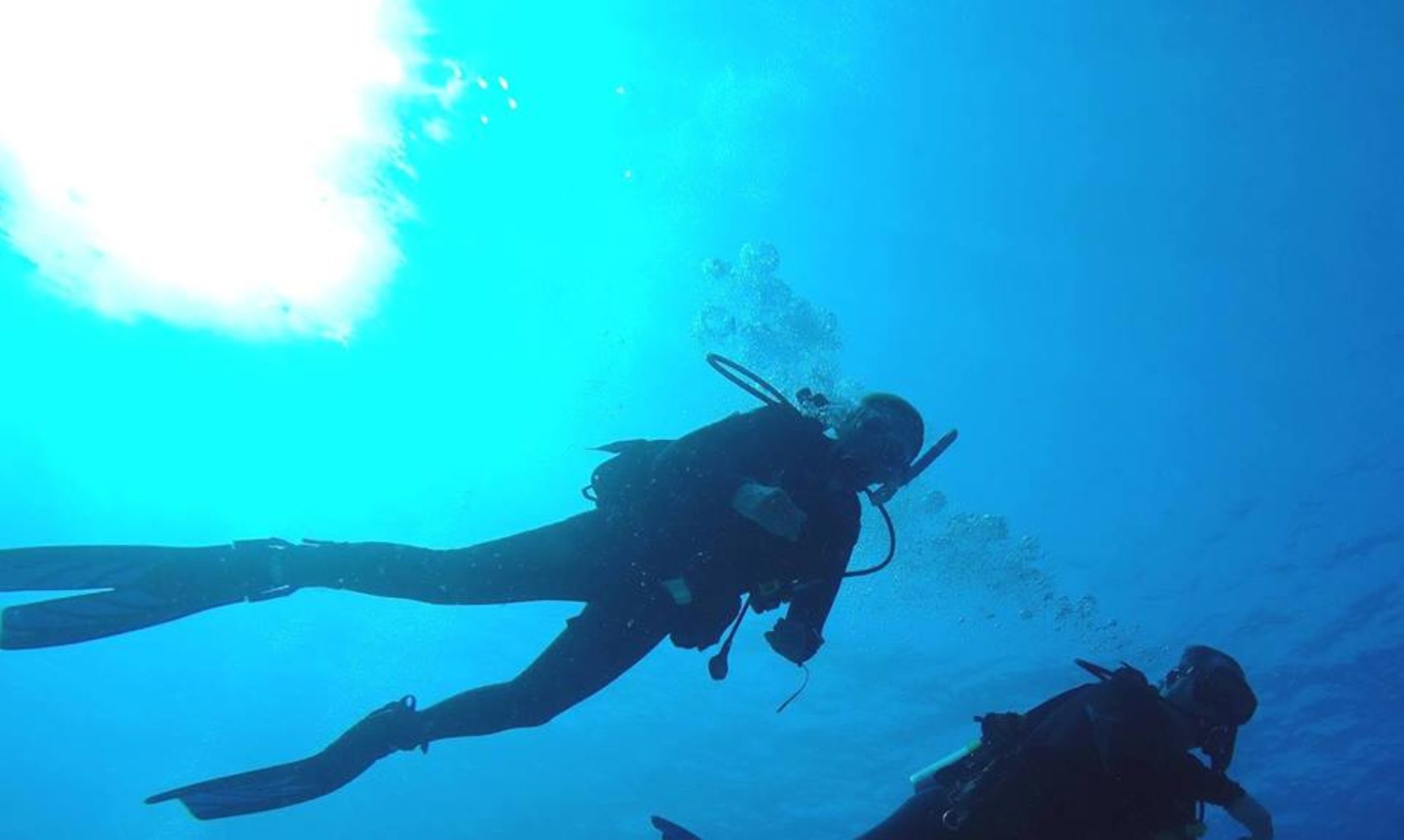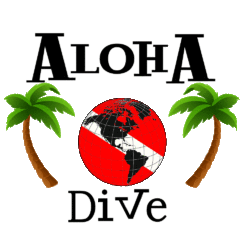DO I REALLY NEED TO BE CERTIFIED TO DIVE?

As an instructor, I have heard this statement way too many times. Whether I am at a party, in line at the supermarket or in the shop, people are quick to tell me that they have tried scuba diving with a family member or a friend that is certified. They tell me how they “only” went to 20 feet so there was NO way they could get hurt! Little did they know that they were at greatest risk in that first 33 feet down. They did not know that the ambient pressure is twice as great in the first 33 feet as it is at sea level. What does this mean? It takes TWICE as much air to fill your lungs in that 33 feet as it does at sea level, and if they hold their breath and surface within that 33 feet, they run the risk of an over expansion injury. You run the risk of an over expansion injury holding your breath and surfacing from only FOUR feet!
Compare your lungs to a balloon. If you take a balloon down and fill it to capacity with air, tie it off and let it surface, what will happen? It will take twice the volume of air to fill it that it would at the surface in and as it rises and the pressure decreases, the air will expand (the volume will double) and the balloon can burst. Now imagine that that balloon is your lungs. Not a pretty picture.
As an instructor, I have seen people slurp in salt water at the surface and have a near drowning experience. People are in the water with all of this equipment and try to get back in thru the surf zone and get tumbled. With gear on it is hard to stand up and again, near drownings! I have seen divers that are experienced come up, take the regulator out of their mouth and slurp in salt water due to wind chop…again, near drowning! Now imagine that you do NOT have training and try to come in thru the surf zone and get tumbled. You could drown.
Scuba diving is a very safe sport. With proper training and by following the rules of scuba diving you substantially reduce the risk of injury. It would be no different than driving a car. If you are taught defensive driving and the rules of the road and you practice these rules of the road, you reduce the risk of injury. But…if you jump in a car without any training, take off and drive on surface streets (yea, that’s ok because you are only driving 35 mph) and are only going to drive 20 miles, what do you think can happen? Also, if you take off and drive at 100 mph on the freeway, weave in & out of traffic, you increase the odds of having an accident and causing injury to yourself or others!
We offer scuba training for a very reasonable price. We will train you to develop the skills necessary for safe diving practices to reduce the risk of injury. We will explain the rules of diving and what can happen if you do not follow these rules, and how to have a safe and enjoyable time in the water. Please, PLEASE do not fall into the assumption that if you do not go deep and you stay within 20 feet or so that you are safe without any training! Don’t take your loved ones into the water without their getting the proper training. What most people do not realize is that if they take a friend in the water, and they are not insured & certified instructors, and the friend gets hurt that they can be sued! There is also the possibility that they can be held criminally responsible if a major accident/injury or a death occurred. Do not leave yourself open to a law suit. Insist that they go to a qualified instructor and get the proper training.
These are the opinions of the author and I welcome any and all comments. Until next time, Dive Safe!
DISCOUNT SCUBA CERTIFICATION – WHAT IS YOUR LIFE WORTH?
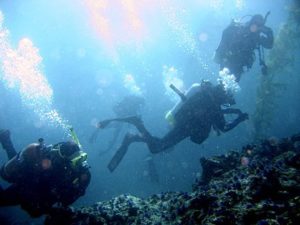
In this era of “internet surfing” for discount pricing, scuba certification is no exception. However, are you getting “good training” or just minimum standard scuba certification training? In my opinion, you get what you pay for!
I have been teaching Scuba Certification training for many years. The question I get asked quite often is “can you give me a discount on my training?” My answer is “yes, I can, I will give you the bear minimum training according to scuba certification standards.” The look on a person’s face is “priceless” when you tell them that! Then the next question I get asked “is your training safe?” My answer is “yes, but again, if you want me to discount my price, I will discount my training services to bear minimum training standards. If you cannot complete the course within the time schedule provided and according to the minimum training standards, then you will have to pay more for completion.”
Scuba Diving is a safe sport, provided you have the proper training by a trained professional, hopefully with experience in my opinion. I also am of the opinion people have this idea that Scuba Diving “can’t be that hard…all you have to do is strap on a tank and breathe underwater.” Really? Let’s see, we are going from a natural environment to an unnatural environment! So my question is? Why would a person want to pay for minimum scuba diving certification standards? Maybe they are penny wise and maybe pound foolish in my opinion!
A very famous hamburger chain serves square hamburgers. When the original owner was asked why he served square hamburgers, his answer was “we don’t cut corners, we serve quality”.
As the owner of ALOHA DIVE, I train my professional leaders NOT TO CUT CORNERS when it comes to Scuba Certification Training because safety is #1 with us. All of us here at ALOHA DIVE pride ourselves “Quality & Experience you can Trust”
I welcome your questions and opinions.
To Be or Not to Be….that IS the question.
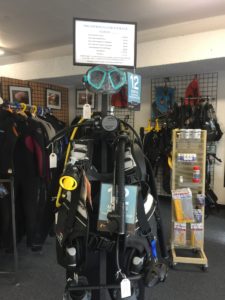
Do you want to be a diver or are you just looking to be certified? This is a question I ask ever potential student that comes into the store. Why do I ask this you may wonder? Let me explain it to you.
I recently was talking to a young lady that was certified thru another shop. She came to us to rent for an upcoming dive and needed to rent everything…from soup to nuts. The only things she owns are her mask and snorkel. She needed booties, fins, gloves, hood, wetsuit, regulator system, BCD, tank, weights and a bag. I was surprised that she did not have her own personal snorkeling package…booties, hood, gloves, fins and gear bag. This is something that all of our students have.
During our conversation I asked why she did not have her own snorkeling package and she stated that the shop that certified her did not require she have it. It seems that they loan these items to their students. In my opinion the other shop is just selling certification merit badges, they are NOT developing divers. They are truly doing a disservice to the student & the industry. We do not normally rent gloves, booties, hoods and fins but she is a very nice gal and we really did want to help her out…so I rented her some of my personal gear along with a wetsuit, regulator system, BCD, tank & weights. Your personal snorkeling package is something that we all should own for hygiene reasons and is something that is not very expensive.
The boat trip was great and she was a perfect dive buddy for one of our other customers. They had 3 great dives and formed a new friendship and have made plans to dive together again soon. We spent time in the galley on the way home discussing the benefits of owing your own equipment and the cost of such ownership and why you are a better, safer diver when you own. She commented that her BCD was not as comfortable as the one she had rented the time before and that the regulator this time seemed to breathe better than the one the first time she rented. I tried to explain that when you own your own equipment that you are more comfortable, a safer diver and these two items add up to enjoyment. Let me repeat that, comfort + safety = enjoyment. A very SIMPLE formula. When you own your own regulator system you know how it breathes. You own your own BCD you know where your clips are and where the dump valves are. You are a committed & SAFER diver. You have made the commitment to become a true diver and not just certified.
I understand that buying a complete scuba system does require a financial commitment up front. The investment, however, is very worthwhile considering how long scuba gear lasts if maintained properly. The overall cost is very reasonable considering the years of comfort, safety & enjoyment to will get in owning your own gear. So, I ask you again, do you want to be a diver or just hold a certification card? Compare it to getting your driver’s license. Do you rent a car every time you need to go someplace or do you buy a car?
Any instructor that does not explain the benefits of owning your own gear is doing a disservice to the student. They are cheating the student of the benefits of comfortable, safe diving which equals enjoyment.
These are the opinions of the author and I welcome comments
IS GROUPON OR LIVING SOCIAL GIVING YOU THE WHOLE TRUTH ABOUT THE TOTAL COST OF A SCUBA CERTIFICATION COURSE? MAYBE OR MAYBE NOT! YOU DECIDE!
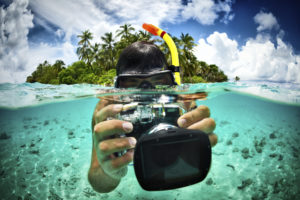
MAYBE OR MAYBE NOT!
YOU DECIDE!
By: Chris Russello, Worldwide Master Instructor Trainer
Certified Diver since 1972
In today’s “I want good, fast and cheap” internet market place, scuba certification courses are no exception, but what happens when you try to get “good, fast and cheap” scuba classes via Groupon or Living Social? Are they giving you the “total amount” you pay or just a “hook” to get you to purchase it then the dive retailer hits you with additional costs. Let’s find out.
When I first signed up for my scuba certification course, over 44 years ago, I had eight classrooms sessions (2 per week for 4 weeks), three pool sessions and 8 open water ocean dives (4 at the beach and 4 on a boat). Back then, the equipment wasn’t as good as it is today, so we had to have more intensive training. Not everyone was fit to become a scuba diver, but those who finished turned out to be good trained divers. Now let’s fast forward to current times. The minimum standards with most certification agencies are less time in the classroom, if any. Why? You guessed it, on-line training. Also, less skill training in the pool. Why? You guessed it again; equipment is much better. But I don’t agree with less open water ocean dives. Does doing 4 open water oceans dives really train a person to become a scuba diver? This author says NO. A Scuba Certification Agency located in Southern California though it was a good idea to increase diver certification, so they lower their minimum standards and therefore all the other agencies had to lower their minimum standards in order to compete.
Now, in the age of on-line shopping, Groupon and Living Social have emerged. You shop around the internet looking for the “best deal” to get scuba certified. You are “surfing around” looking at Groupon or Living Social and come across a “Groupon Deal for a Catalina Island Weekend Getaway”. Does it include “total cost” of the scuba certification course or it is just a “hook” to get you to purchase it and then they “hit” you with additional costs. My opinion, it’s a “hook”.
In advertising this “deal”, does is mention the “total cost” of the certification…NO.
There are “hidden” fees. For instance, when you read the details, you take the Catalina Express, however is doesn’t mention there is an additional fee for 2 days parking. Is the total cost of food included for the weekend? It talks about an additional fee for equipment rental on the island. What specific equipment are they talking about? Is there any additional equipment needed, and if so, how much? Does this ad mention the experience of the scuba instructors? Class size?
How long the dive shop has been in business?
Also, the ad mentions “the course is over two weekends”, one weekend is class and pool, but what happens if you cannot complete the required classroom academics or pool skills required for ocean dives within that weekend? Do you pay extra to transfer to another class or what?
It is the opinion of this author; the merchants who post “deals” on Groupon or Living Social DO NOT disclose the TOTAL cost of your scuba certification. There are “hidden fees” but what the merchants are hoping for is that you purchase the Groupon Deal and then after you are “hooked” they tell you about all the additional hidden fees that are not included. The merchants believe you will pay the additional fees since you have already committed to the on-line purchase.
Don’t be fooled, do your due diligence homework. Before you purchase Groupon or Living Social, call the merchant and ask what the deal includes and if there are any additional costs. Maybe the merchant has a better deal for you that fits your needs. If you don’t ask you may not know until you are “hooked” and by then it may cost you more that you had originally planned to spend!
Scuba Training, Is All Training Equal?
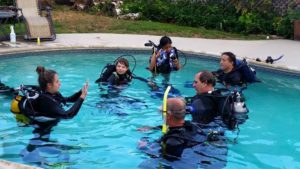
Scuba diving is a wonderful sport. With today’s equipment and training scuba diving is extremely safe, but is this really true? Yes, the equipment is great and helps us be safe but is all training equal?
The first time I wanted to get certified the instructor I chose spent the time with me and one other student in classroom and pool training. When it came to the open water portion, I was with a group of 6 students and at the beach. I was the only female and by far the smallest of the group. My instructor told me I had to keep up and not hold the rest of the group back. Unfortunately, I lost my mask in the first attempt. Second attempt was no better, I lost one of my fins. This “instructor” informed me that I did not have what it took to be certified.
My second attempt at certification was a few years ago. I paid for my classroom and pool sessions. This time there were three of us in class. We met at the boat Saturday morning but low and behold there were 5 other students on the boat. This time I had trouble with not having enough weight and having trouble getting down and staying down. The instructor brought me back to the surface and yelled at me to get back on the boat, he could not give me personalized attention with so many other students. He informed me that he would address my weight issue before the second dive and I would have to pay for another boat trip. Needless to say I did not get certified and decided that maybe scuba diving was not for me.
About 16 months ago I won an all-expense paid vacation to Maui, HI. As a water baby, people told me I that that the diving on Maui was fabulous and that I really did need to dive with the turtles. I decided to try again but this time I “interviewed” a number of shops. I asked questions; how many students in a class and how many in the ocean? What would happen if I had trouble with a portion of the training? Would I get the extra attention or time needed? Was there beach diving involved or was it all boat? And what was the complete cost and what exactly was covered? Were there any extra “hidden” costs?
After speaking to a number of shops I made the decision to try again with ALOHA DIVE. Training was done on my schedule, not a set rigid schedule. This was important to me as I work long hours and sometimes work later than planned, or on weekends, if a client needs me.
My boat trips were small groups of 3 students with plenty of individual attention. The cost was no more than the three other shops that told me the class would consist of myself and 5 to 7 other students and had to be completed in two consecutive weekends. Let me restate that…individual attention vs being one of many, flexibility in schedule, same cost. It was a no brainer. Needless to say, the experience was wonderful and I am close to 100 dives on record.
The difference between the training I received and the other shops is best compared by the following incident. A few months ago I was out diving at Casino Point on Catalina. I was with my instructor and another student who was doing his rescue training. This student had been a lifeguard a few years ago and is able to recognize a panicky person in the ocean. The three of us did our first dive and were spending some time waiting to get back in again when a class showed up from another dive shop. The instructor had 8 students with him doing their first open water dive. We sat and watched while they went out and started to drop down. One of the students panicked and was at the surface struggling. The instructor came up (and I would guess he violated protocol by leaving divers down below because I don’t believe he had any help with him) and told her to swim back to the steps and get out of the water. He stated he had to go back down to attend to the students he left below. The girl was extremely upset and very frightened. The rescue student that was with us went out and helped her in. Again, as a lifeguard he recognized the signs of a panicky person in the water. He spent the time reassuring her that she was ok and safe. Needless to say this gal stated that she was done and did not want to try again. Boy did I understand that she had a bad experience and did not want to try again, déjà vu.
Today people are looking for the most bang for their buck. I get it. Money doesn’t grow on trees. Most of us look for the best buy we can find, but is the best buy always the best? Probably not.
I was recently talking to an acquaintance of mine who decided to look into the cost of open water certification. She started to call around to find out what the dive shops were charging in her area and discovered one store that advertised online that the cost was only $389. I told her to ask about additional costs and when she did she found out that she needed to purchase her personal snorkeling package from them…to the tune of $300 – $500! She also found out that the trips to Catalina were not on a dive boat, but on the Express…so food and parking was extra. Another store was only $299 but it is only beach dives and you need to buy your gear from them, again over $300. Both store have large classes and are very rigid in their training schedule. Both stores have instructors that have varying levels of experience teaching, some are very new and some are seasoned instructors.
This acquaintance asked me where I received my certification and of course, I told her about ALOHA DIVE and my experience. No more expensive (as a matter of fact their all-inclusive package is less money) and she will get individual, flexible training with a dive professional who has been diving for over 43 years. He knows what he is doing and gives the very best in training. All agencies have basically the same standards. You must pass all of your skills and have a minimum number of dives. I guess my question is, do you get the same level of training when you are in a class of 8 with one instructor as when you are in a class of 2 or 3 with an instructor? My answer is no. Yes, the same skills but not the same level of training. I have taught and I know that in a classroom of 15 – 30 students someone is always behind or slower than the rest of the group. Can they do the minimum to get by, sure. But, how does that same student do in an individual or small training class? With more personal attention the student does do better.
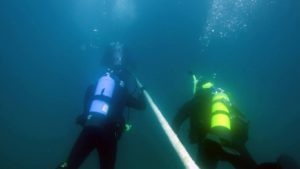
My opinion is that with the personalized training and the attention I was given, I know I am a much better and safer diver than the person who was taught in a class of 8 with only 1 instructor. As a better and safer diver my chances of injury are greatly reduced.
My recommendation is, buyer beware and be educated. Find out what your training will cost and how personalized it will be. Never, NEVER forgo your safety & life to save a dollar. Buy from the best and be sure you know who you are buying from!
